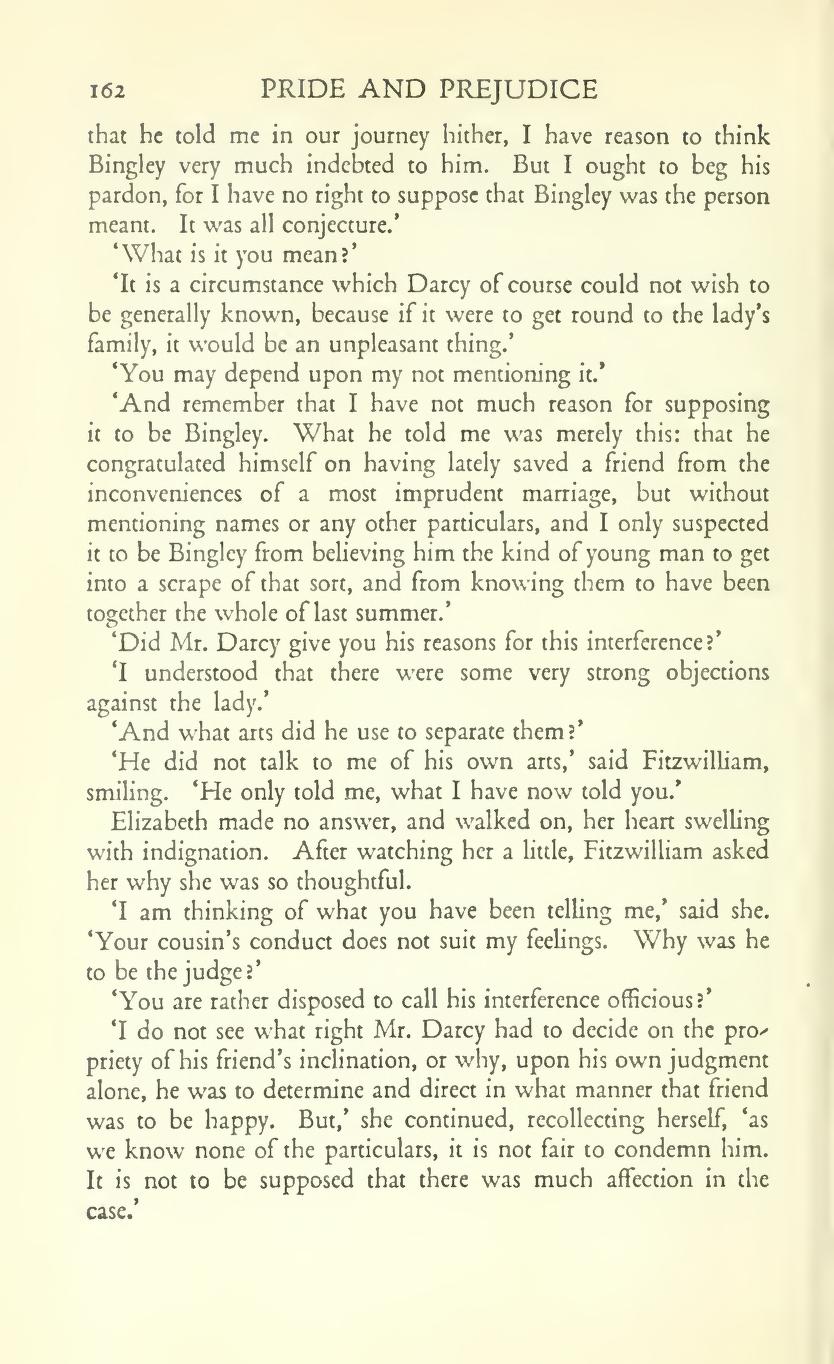 ............prev.....................next
............prev.....................next{{prxprp162.jpg}} || 162 PRIDE AND PREJUDICE ||
that he told me in our journey hither, I have reason to think
Bingley very much indebted to him. But I ought to beg his
pardon, for I have no right to suppose that Bingley was the person
meant. It was all conjecture.'
'What is it you mean;'
'It is a circumstance which Darcy of course could not wish to
be generally known, because if it were to get round to the lady's
family, it would be an unpleasant thing.'
'You may depend upon my not mentioning it.'
'And remember that I have not much reason for supposing
it to be Bingley. What he told me was merely this: that he
congratulated himself on having lately saved a friend from the
inconveniences of a most imprudent marriage, but without
mentioning names or any other particulars, and I only suspected
it to be Bingley from believing him the kind of young man to get
into a scrape of that sort, and from knowing them to have been
together the whole of last summer.'
'Did Mr. Darcy give you his reasons for this interference?'
'I understood that there were some very strong objections
against the lady.'
'And what arts did he use to separate them?'
'He did not talk to me of his own arts,' said Fitzwilliam,
smiling. 'He only told me, what I have now told you.'
Elizabeth made no answer, and walked on, her heart swelling
with indignation. After watching her a little, Fitzwilliam asked
her why she was so thoughtful.
'I am thinking of what you have been telling me,' said she.
'Your cousin's conduct does not suit my feelings. Why was he
to be the judge;'
'You are rather disposed to call his interference officious?'
'I do not see what right Mr. Darcy had to decide on the pnv
priety of his friend's inclination, or why, upon his own judgment
alone, he was to determine and direct in what manner that friend
was to be happy. But,' she continued, recollecting herself, 'as
we know none of the particulars, it is not fair to condemn him.
It is not to be supposed that there was much affection in the
case.'
[[162]]